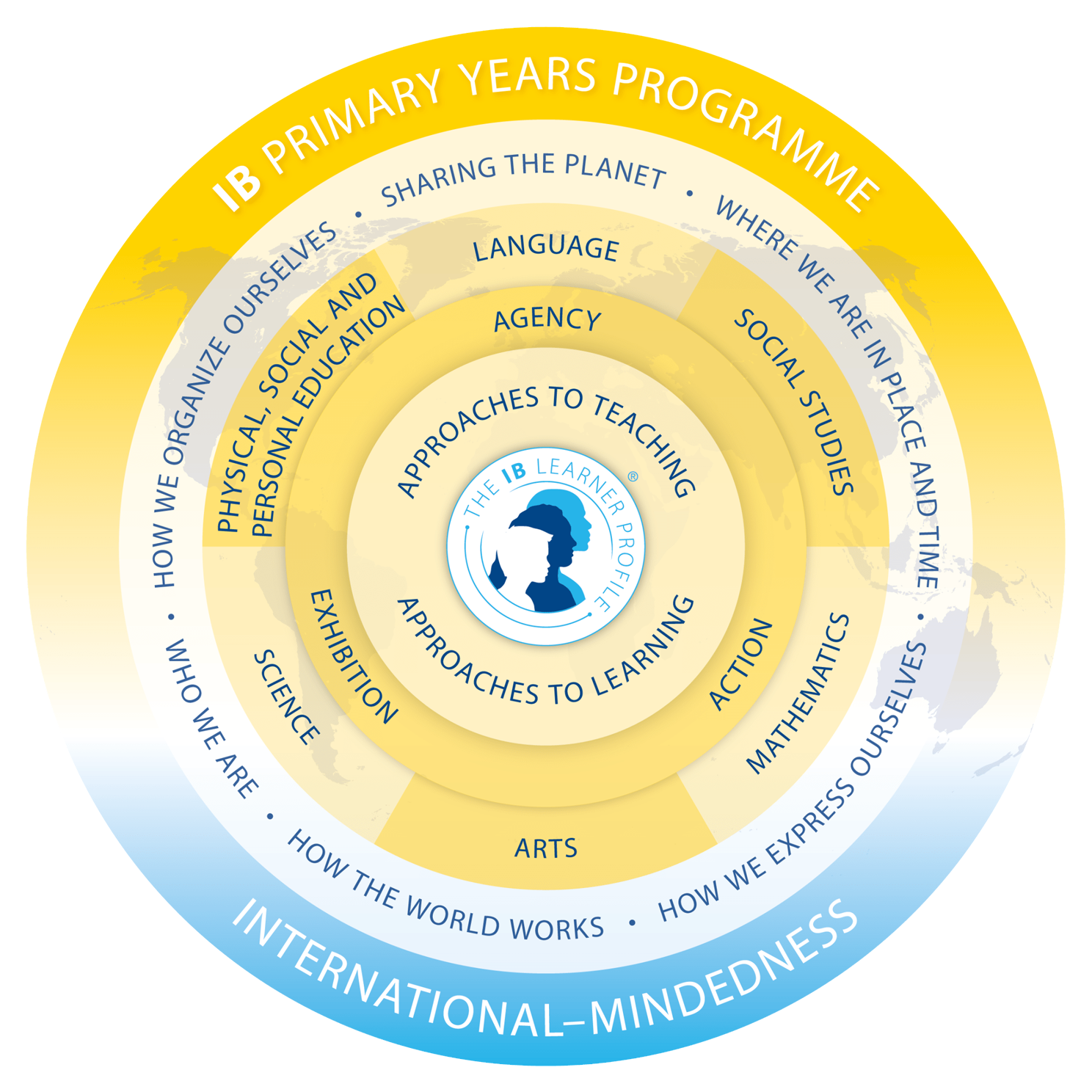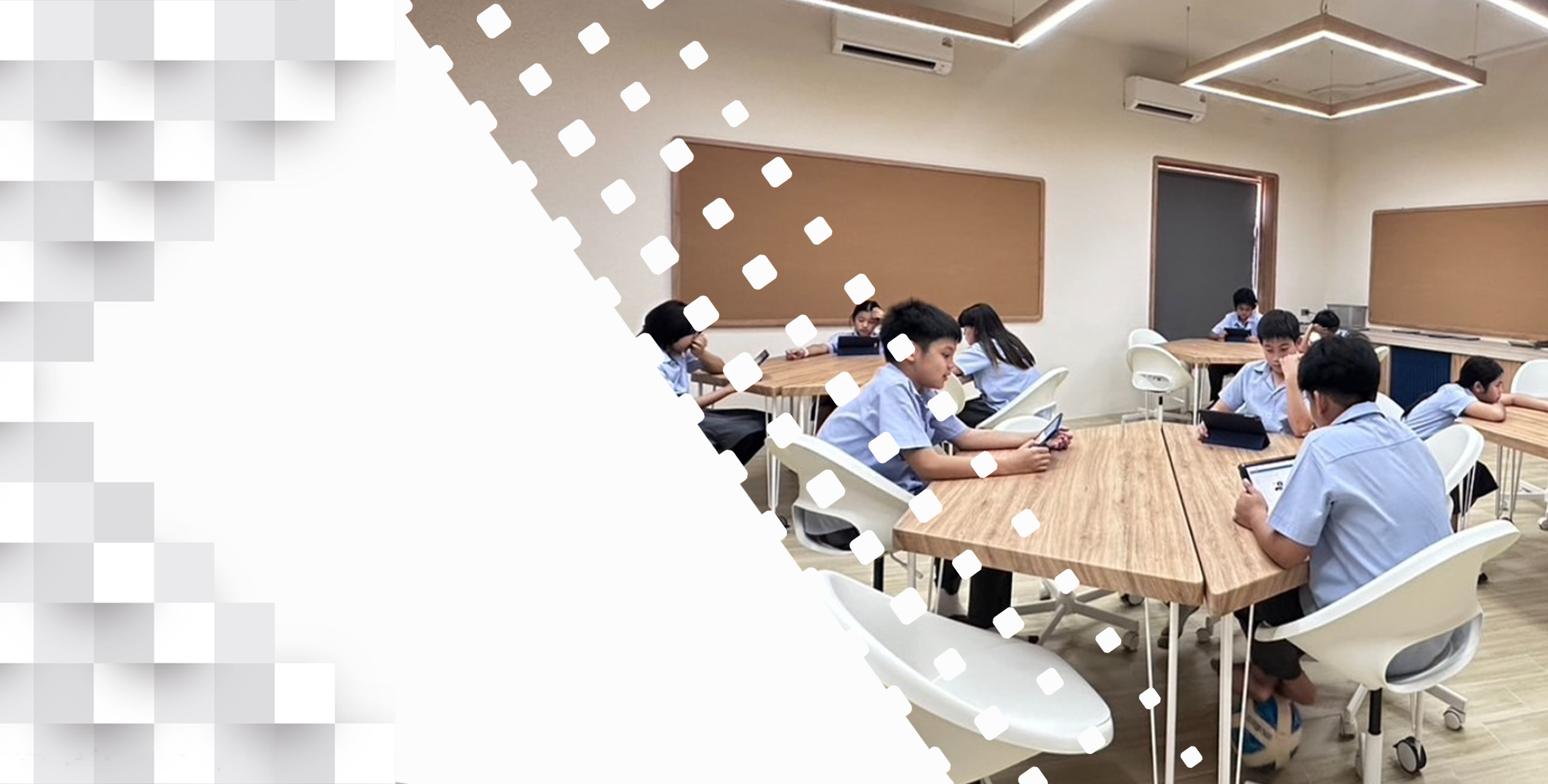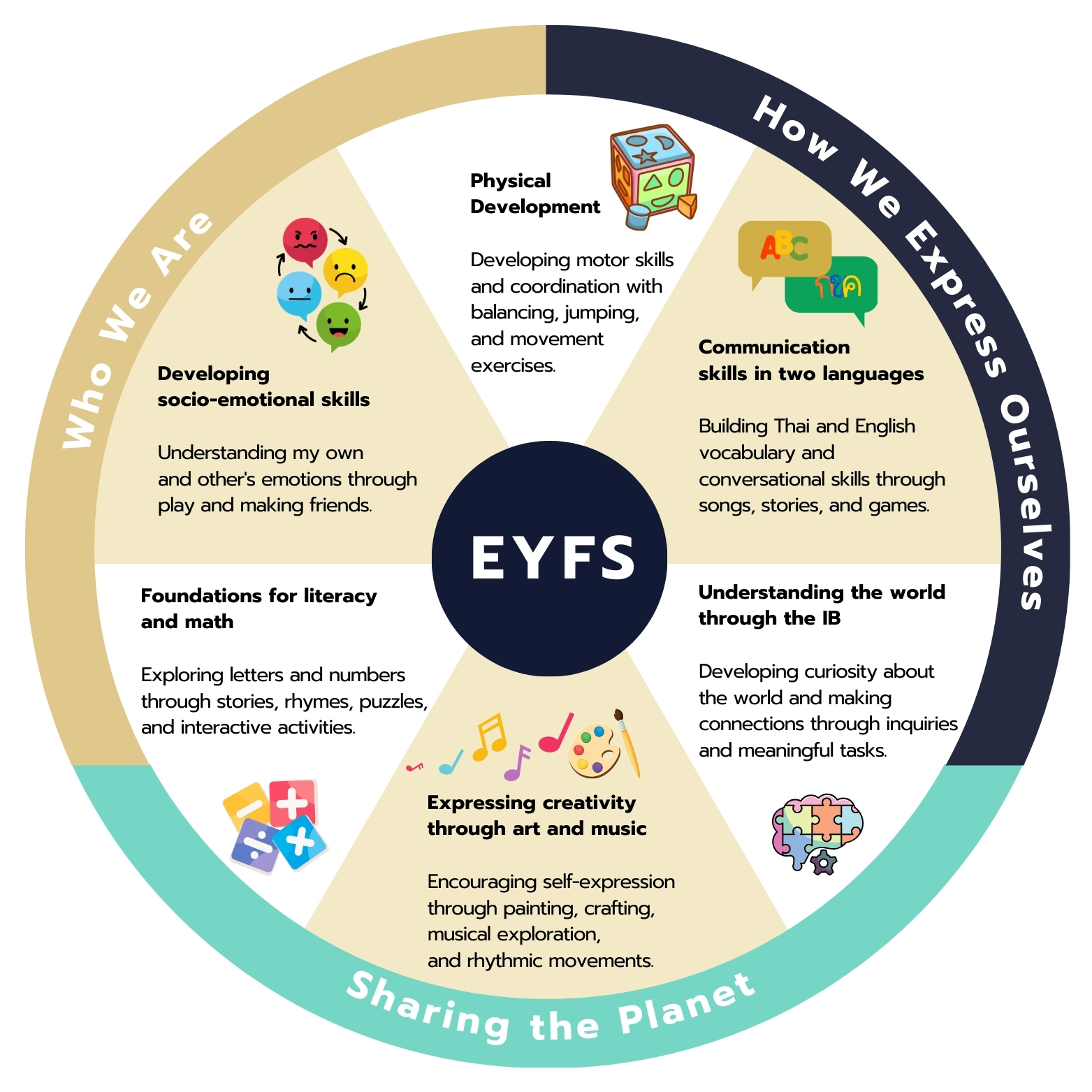What is the International Baccalaureate?
The International Baccalaureate (IB) is a globally recognized, non-profit educational organization with offices around the world.
The IB offers challenging educational programmes for a worldwide community of 5,000+ schools in over 150 countries, all with a common aim of creating a better world. The IB continuum consists of four coordinated programmes of study for students just stating their formal education all the way through to the end of high school.
The IB, which started in the1960s, suits internationally-minded families who are looking for the best, consistent and high quality education that is available, recognized and respected worldwide.
First Steps Toward the IB Journey
At STIS, we believe that the key to education for our youngest students is to provide them with a safe and nurturing environment where they feel comfortable to explore and learn confidently.
STIS is a Candidate School* for the International Baccalaureate Primary Years Programme (IB PYP) and is actively working toward authorization as an IB World School. These institutions share a common philosophy: a commitment to high-quality, challenging, international education—something STIS values deeply for its students.
Our EY Prep framework for children aged 2-3 years old, offers flexible, creative, engaging and age-appropriate play-based activities in a specially designed learning space. The programme is designed to spark a child’s imagination, creativity and curiosity while building their confidence and self-management skills
The EY Prep framework and IB PYP share common principles and approaches to learning, such as a focus on inquiry, play, and child development, allowing for a smooth transition from EY Prep into our PYP program.
What Makes EY Prep Special?
Inquiry-Based Learning: Inspiring curiosity through exploration, discovery, and thoughtful questioning.
Play-Based Learning: Encouraging creativity and problem-solving through hands-on and imaginative play.
Integrated Learning Approach: Make links between ideas and develop strategies for doing things. Seamlessly combining the Early Year Prep learning areas within the IB Primary Years Programme (PYP) framework to cultivate a lifelong love of learning.
In EY Prep, emphasis is place on the following:
• Personal, Social, and Emotional Development
• Communication and Language Physical development
• Cognitive development
• Understanding the world
• Expressive Arts and Design
Discover the Heart of Learning at STIS
Step into the vibrant community of Suratthani International School, where the spirit of curiosity and shared joy defines learning in our School.
STIS is a Candidate School* for the International Baccalaureate Primary Years Program (IB PYP) and is actively working toward authorization as an IB World School. These institutions share a common philosophy: a commitment to high-quality, challenging, international education—something STIS values deeply for its students.
The IB Primary Years Program (PYP) provides the foundation for our teaching and learning. PYP students aged 3 to 11 have agency and inquire into issues and topics that have personal relevance. They research global challenges and find ways to take meaningful action locally here in Suratthani.
A child’s first school experience is key to their lifelong learning journey.
At STIS, our Early Years Program (Kindergarten 1–3) focuses on inquiry-based, play-driven learning that nurtures curiosity, creativity, and confidence. With a safe, welcoming environment and a low teacher-to-student ratio, children explore, grow, and develop essential skills while building independence and self-confidence. Our curriculum, based on six transdisciplinary themes like "Who We Are," helps connect learning to the world around them.
Our Primary School is dedicated to promoting academic excellence, cultivating a sense of responsibility, and instilling the values of good citizenship in a supportive and inclusive community. Students in Grades 1 to 5 engage with the IB Primary Years Program, which prepares them for a smooth transition into the IB Middle Years Program in Secondary School.
To explore and inquire effectively about the world, students need strong literacy and numeracy foundations. Our Primary School places a high priority on explicitly teaching these essential skills. Using research-based strategies, we adopt a systematic, tailored approach to learning, enabling students to become confident speakers, listeners, readers, and writers.
In Mathematics, we emphasize explicit problem-solving instruction while reinforcing and building upon mathematical skills each year. This approach equips students with a robust ‘toolkit,’ empowering them to become independent problem solvers who confidently and creatively express their understanding.
Within the PYP framework, we cultivate a dynamic environment that nurtures the holistic development of our students, equipping them with the knowledge, skills, and dispositions essential for lifelong learning—beyond academics.
Central to our philosophy is the belief that every student possesses the innate capacity to learn, and that this learning is most profound when ignited through hands-on, concept-driven, and inquiry-rich experiences. At STIS, the PYP is more than a curriculum—it is a thriving community of engaged, curious, and inspired individual learners.

The PYP is built around six transdisciplinary themes that help students make connections between different subject areas and the real world. These themes help students build an understanding and appreciation of the local environment in Thailand while also developing a sense of global citizenship. The PYP also incorporates key concepts to assist students in developing their critical and creative thinking skills. These concepts encourage students to explore and discover through play and to reflect on their learning experiences.
The PYP at STIS is an inclusive program that is designed to meet the needs of all students. The program is flexible and adaptable, so that it can be tailored to meet the needs of individual students.
Overall, PYP at STIS provides a great foundation for students to develop a love for learning and to be prepared for life beyond school. We focus on the whole child, and equip them with the skills and knowledge to navigate the world around them. The program's hands-on, inquiry-based approach encourages students to be curious, and to think critically and creatively. The PYP at STIS is a great choice for families who are looking for an international education that is challenging, engaging, and inclusive.
Transdisciplinary Learning
The PYP is a transdisciplinary program, providing interconnectedness between subjects and disciplines wherever possible. It is also connected through core elements:
• Subject Knowledge
• Key Concepts
• Approaches to Learning
• Student Action
PYP Key Concepts
The key concepts are central to the curriculum and are presented in the form of key questions. It is these questions that shape each unit of inquiry giving it direction and purpose. The concepts have been carefully developed to encourage students to develop further open-ended questions and think more broadly and deeply as they develop their inquiries and understandings.
These concepts are:
• Form - What is it?
• Function - How does it work?
• Causation - Why is it like it is?
• Change - How is it changing?
• Connection - How is it connected to other things?
• Perspective - What are the points of view?
• Responsibility - What is our responsibility?
Through exploring these concepts children are able to explore big ideas about the world, and develop their own questions in increasingly more cognitive ways
The IB Approaches to Learning
The ATL connects the PYP vertically to the MYP. They also connect through all the subject disciplines, and are important in supporting children to transfer learning from one area to another. The ATL are a set of 5 skill groups which are unpacked into more specific sub skills:
Self Management Skills
Organization: Managing Self, Time Management, Goal Setting
States of mind: Mindfulness, Perseverance, Emotional Management, Self Motivation, Resilience
Social Skills
Interpersonal: Self Control, Emotional Intelligence
Interpersonal: Respecting Others, Supporting Others, Social Intelligence, Resolving Conflict
Thinking SkillsCritical thinking
Analysis, Evaluation, Farming Decisions
Creative thinking: Generating novel ideas, Considering new perspectives
Transfer: Application, Application in multiple Contexts
Reflection: Reflection, Metacognition
Research Skills
Information Literacy: Formulating & Planning, Gathering & Recording, Synthesizing & Interpreting, Evaluating & Communicating Media Literacy: Consuming & Processing, Considering online perspectives
Ethical Use: Ethical Use Reliability of sources
Communication Skills
Exchanging Information: Listening, Interpreting, Speaking
Literacy: Reading, Writing,
ICT: Media Representation, Informed Choices
Action in the PYP
Action is an essential element of the PYP and encourages students to take responsibility for their learning and to make a positive difference in their communities. It emphasizes on the importance of taking action based on the knowledge, skills, and attitudes acquired through their learning experiences. Action at STIS can take many forms, for example, students show agency and develop projects to make the school community a better place, and they take part in a service learning project to help others. They can be individual or group projects, local or global actions, that aim to make a positive impact on the world. Through action, students learn to become responsible global citizens who are committed to making a positive difference in the world.


